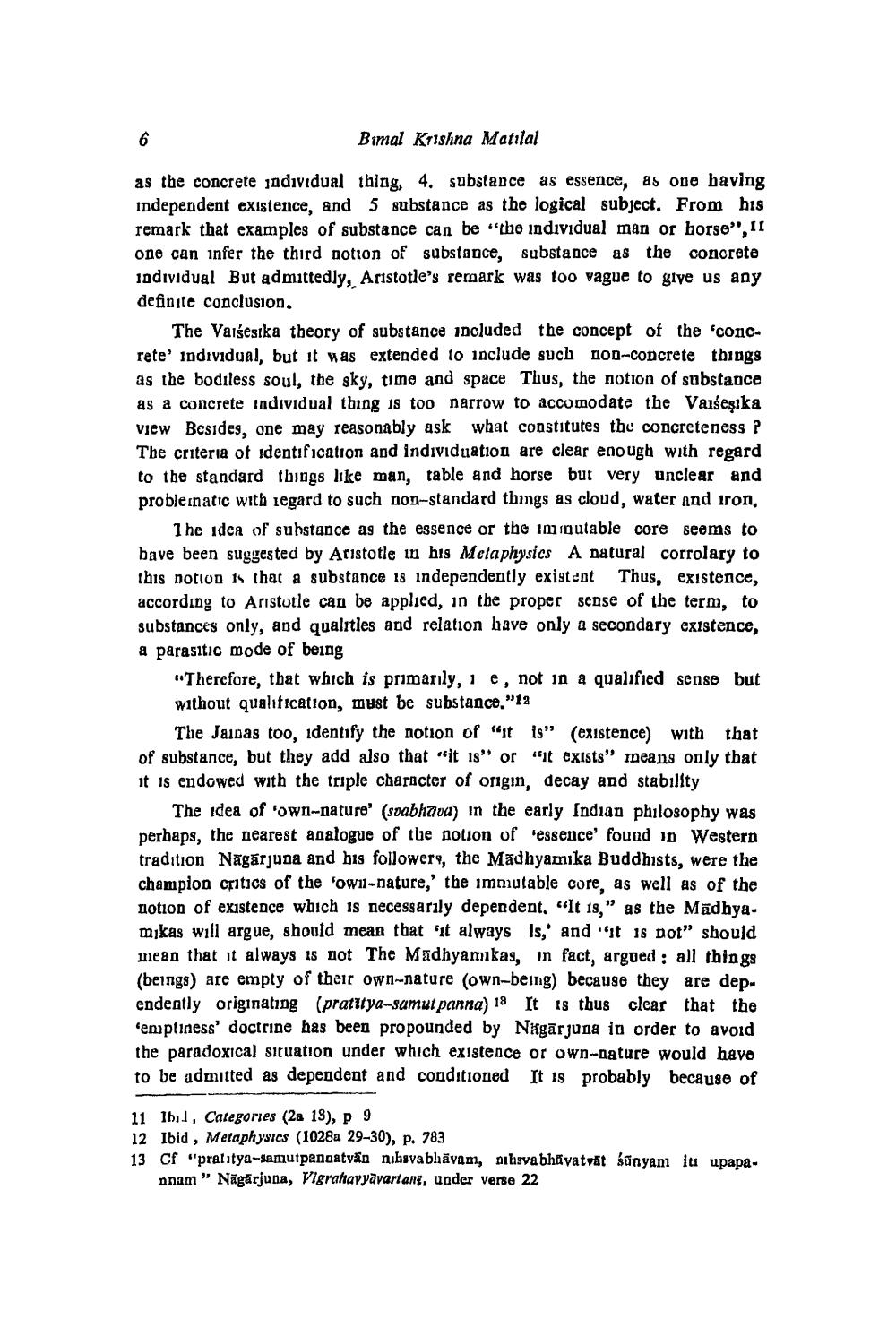________________
Bimal Krishna Matilal
as the concrete individual thing, 4. substance as essence, as one baving independent existence, and 5 substance as the logical subject. From his remark that examples of substance can be "the individual man or horse", 11 one can infer the third notion of substance, substance as the concrete individual But admittedly, Aristotle's remark was too vague to give us any definite conclusion.
The Vaišesika theory of substance included the concept of the 'concrete individual, but it was extended to include such 1100-concrete things as the bodiless soul, the sky, time and space Thus, the notion of substance as a concrete individual thing is too narrow to accomodate the Vaišeşika view Besides, one may reasonably ask what constitutes the concreteness ? The criteria of identification and individuation are clear enough with regard to the standard things like man, table and horse but very unclear and problematic with regard to such non-standard things as cloud, water and iron,
The idea of substance as the essence or the imputable core seems to bave been suggested by Aristotle in his Metaphysics A natural corrolary to this notion is that a substance is independently existent Thus, existence, according to Aristotle can be applied, in the proper sense of the term, to substances only, and qualıtles and relation have only a secondary existence, a parasitic mode of being
"Therefore, that which is primarily, i e, not in a qualified sense but without qualification, must be substance."12
The Jalpas too, identify the notion of "t is" (existence) with that of substance, but they add also that "it is" or "t exists" means only that it is endowed with the triple character of origin, decay and stability
The idea of 'own-nature' (svabhava) in the early Indian philosophy was perhaps, the nearest analogue of the notion of 'essence' found in Western tradition Nāgārjuna and his followers, the Madhyamika Buddhists, were the champion critics of the owul-nature,' the immutable core, as well as of the notion of existence which is necessarily dependent. “It 18," as the Madhyamikas will argue, should mean that 't always is,' and 't is not" should mean that it always is not The Madhyamikas, in fact, argued : all things (beings) are empty of their own-nature (own-being) because they are dependently originating (pratilya-samut panna) 18 It is thus clear that the 'emptiness' doctrine has been propounded by Nagarjuna in order to avoid the paradoxical situation under which existence or own-nature would have to be admitted as dependent and conditioned It is probably because of
11 lhl, Categories (2a 19), P 9 12 Ibid, Metaphysics (1028a 29-30), p. 783 13 CF "prattya-samutpanoatvan nihavabhävam, nisva bhavatvat sünyam it upapa
anam " Nagarjuna, Vigrahavyāvartant, under verse 22




